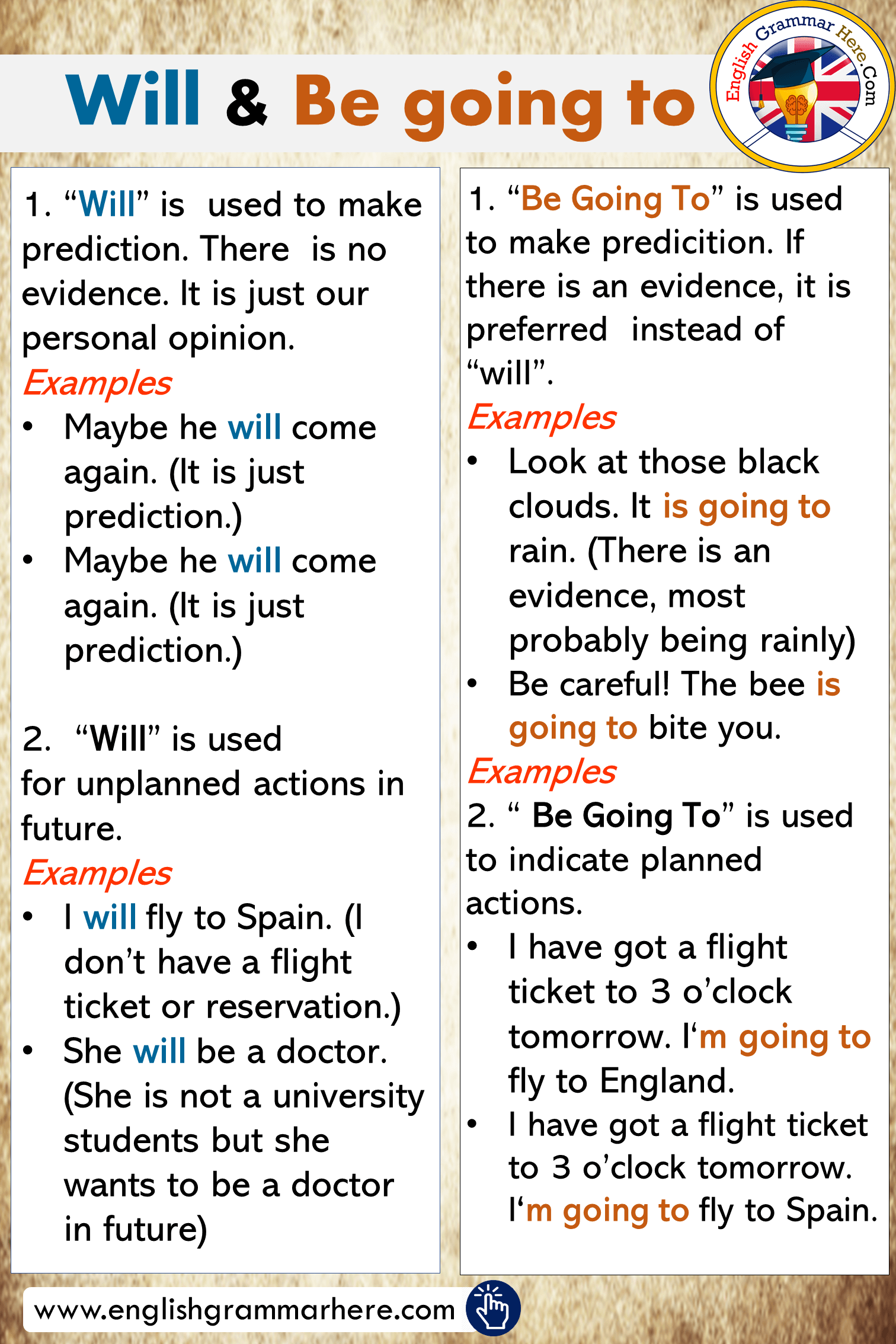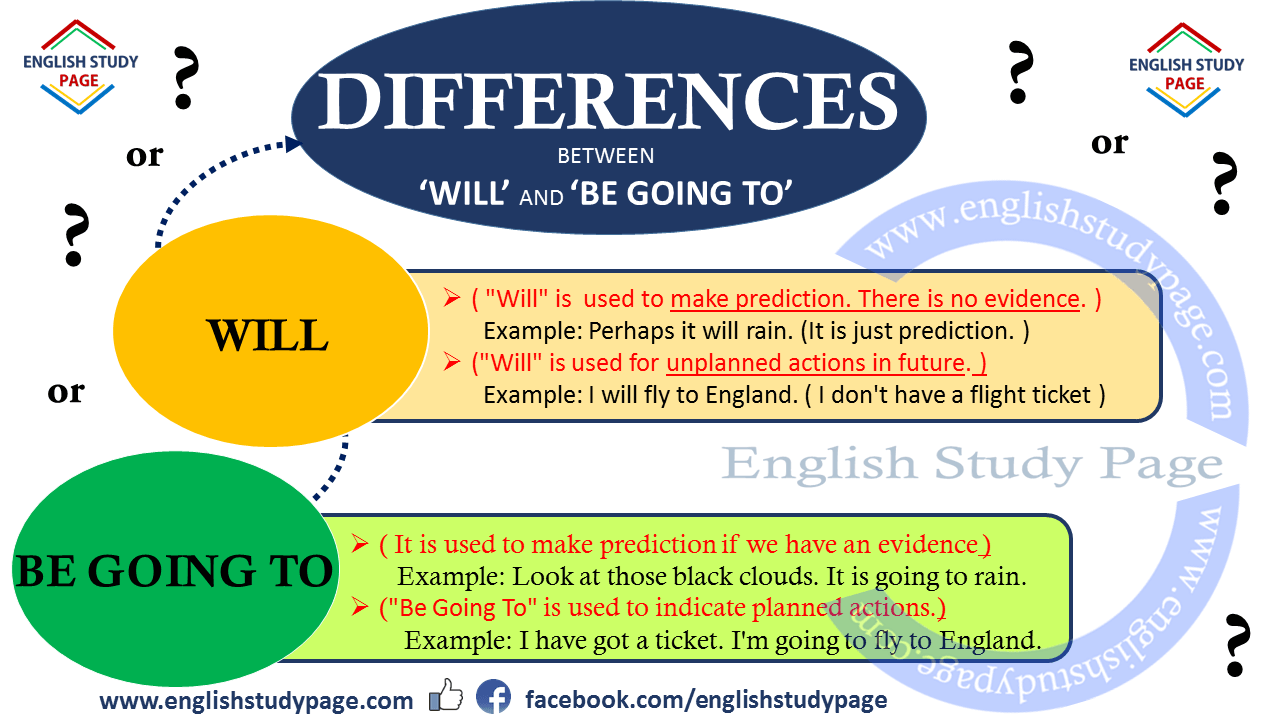Ever find yourself wrestling with the nuances of future tense, particularly when it comes to the phrases "there is going to be" and "there are going to be"? Mastering these constructions is absolutely essential for clear and effective communication about future events and plans.
The English language, with its intricate rules and subtle variations, can often present a challenge, even to native speakers. One area where confusion frequently arises is the correct usage of "there is going to be" versus "there are going to be." Both phrases are used to express future events, but understanding when to use each one is crucial for grammatical accuracy and clarity.
| Category | Information |
|---|---|
| Grammatical Function | Future tense existential construction |
| Usage | To express the future existence or occurrence of something |
| "There is going to be" | Used with singular nouns or uncountable nouns (conceptually singular) |
| "There are going to be" | Used with plural nouns |
| Synonyms | There will be |
| Colloquial Variations | There's going to be (informal contraction of "there is") |
| Example Sentence ("There is") | There is going to be a significant change in policy. |
| Example Sentence ("There are") | There are going to be several new initiatives launched next quarter. |
| Common Mistakes | Using "there is" with plural nouns or "there are" with singular nouns. |
| Formal Writing | "There will be" is often preferred in formal or academic writing. |
| Nuance | "Be going to" implies a plan, intention, or prediction based on evidence. |
| Link to Grammar Resource | Grammarly |
Let's delve into the specifics. Both "there is going to be" and "there are going to be" are valid expressions of the future tense. To analyze their accuracy, we need to dissect each usage. "There is going to be + noun": This structure is correct, regardless of whether the following noun is singular or a plural concept. Formally, "is" is followed by a singular noun, but conceptually, it can represent a plural idea. For example, "There is going to be a crowd at the event," even though a crowd consists of multiple people. The key is that "crowd" is a single, collective noun.
- The Killers Jenny Was A Friend Of Mine The Full Story Lyrics
- Is Taylor Swift Ready To Get Married The Latest On Travis Kelce
Simultaneously, "there is going to be" and "there will be" can be used to describe events that are about to happen. For instance, if we know we are moving next week, it's correct to say either "there is going to be a move next week" or "there will be a move next week." The interchangeability highlights the subtle nuances of future tense construction in English.
The distinction becomes clearer when dealing with countable plural nouns. "There are going to be" is used when referring to multiple distinct items. For example, "There are going to be three new branches opening next year." Using "is" in this context would be grammatically incorrect.
Consider these points on using "be going to":
- San Antonio Serial Killers Woodlawn Lake Body Sparks Fears
- Queen Elizabeth Cars Decals The Royal Ride Facts
- To talk about plans or intentions: "I'm going to drive to work today," or "They are going to move to Manchester."
- To make predictions based on evidence we can see: "You are going to fall!" (said when you see someone losing their balance), or "Look at those black clouds. I think it's going to rain."
Contrasting "be going to" with "will" reveals further shades of meaning. "Be going to" often implies a pre-existing plan or a prediction based on current evidence, while "will" can suggest a spontaneous decision or a general future event. For example, "He will write a book one day" suggests a possibility, while "He is going to write a book next year" indicates a firm plan.
To illustrate, compare: "She is going to lend us her book" (implying a prior arrangement) versus "She will lend us her book" (a more general statement of future action). The "be going to" construction includes a sense of planning and preparation that "will" lacks.
The negative forms, using "won't be," also follow similar rules. "Due to the strike, there wont be any mail delivery until the issue is resolved." "If you dont study, there wont be any chance of passing the exam." "There wont be any electricity during the scheduled maintenance period." "Im sorry, but there wont be any refunds for this event." "Without rain, there wont be any crops to harvest this year." These examples demonstrate the versatility of "won't be" in expressing the absence of something in the future.
Now, let's address the synonymous nature of "there is/are going to be." On a fundamental level, there's no difference in meaning between "there is going to be" and "there will be," or between "there are going to be" and "there will be." However, the "is going to" form is often considered more colloquial than "will be." In formal writing, particularly in academic articles, "there will be" is generally preferred. For instance, you might say, "There is going to be a huge reception," but in a formal context, "There will be a huge reception" is more appropriate.
Consider these examples:
- (a) There is/there's going to be 50 people at the party.
- (b) There are/there're going to be 50 people at the party.
Grammatically, sentence (b) is more correct because it aligns the plural "are" with the plural "50 people." However, in casual conversation, (a) is frequently heard.
The phrasing can also imply different things based on context. "Tomorrow there's (there is) going to be a workshop" might suggest that the entire notion of 'tomorrow' is itself a workshop, which is nonsensical. While technically understandable, it's less precise than "Tomorrow, there will be a workshop," which clearly indicates an event happening on that day.
A practical note: the contraction "there's" can sound very similar to "is" in spoken English. This can lead to confusion when discerning the intended meaning, particularly if you're primarily learning through listening.
To solidify understanding, let's examine how "be going to" is used to express predictions:
- A prediction based on opinion: "I think the conservatives will win the next election."
- A prediction based on something we can see (or hear) now: "The conservatives are going to win the election. They already have most of the votes."
Further examples of "be going to" in everyday conversation include: "I am going to see a play tonight." "(I'm going to see a play tonight.) It's late, so I don't think he's going to do his homework tonight." "It's going to rain soon." "We're not going to see my mother this summer." "My favorite team is going to play tomorrow evening." "He's going to tell his boss he's resigning today." These diverse scenarios highlight the pervasive use of "be going to" in expressing intentions, plans, and predictions.
The subtle differences between "will" and "be going to" extend beyond mere grammar; they reflect nuances in how we perceive and communicate about the future. While "will" often denotes a simple future action or a spontaneous decision, "be going to" carries a weight of intention, planning, or evidence-based prediction. The choice between the two shapes the listener's understanding of the speaker's perspective and the likelihood of the event occurring.
Consider a scenario: a friend says, "I will visit you next month." This statement implies a general intention, but it may lack the conviction of a concrete plan. In contrast, "I am going to visit you next month" suggests a stronger commitment, perhaps involving booked tickets or cleared schedules. The latter conveys a sense of purpose and preparation that the former lacks.
Similarly, when making predictions, the choice of tense can significantly alter the message. "It will snow tomorrow" expresses a possibility based on general weather patterns. "It is going to snow tomorrow," however, implies a greater degree of certainty, perhaps based on specific weather forecasts or visible atmospheric conditions. The "be going to" construction adds a layer of credibility, suggesting that the prediction is grounded in tangible evidence.
The distinction becomes even more pronounced when discussing negative outcomes. "There will be no consequences for his actions" suggests a passive acceptance of a potential future. "There are not going to be any consequences for his actions" carries a stronger sense of conviction, perhaps implying a deliberate decision to avoid repercussions. The "be going to" form injects a sense of agency and control into the statement.
Moreover, the colloquial nature of "be going to" often makes it more relatable and accessible in everyday conversation. The contraction "gonna" further enhances this informality, creating a sense of ease and familiarity. While "will" retains its place in formal and academic settings, "be going to" thrives in casual interactions, allowing speakers to connect with their audience on a more personal level.
In summary, mastering the nuances of "there is going to be" and "there are going to be" requires an understanding of both grammatical rules and contextual implications. While "there will be" serves as a reliable alternative in formal settings, "be going to" offers a versatile tool for expressing intentions, plans, and predictions in a wide range of situations. The choice between the two ultimately depends on the speaker's desired tone, the level of formality, and the specific message they wish to convey.
Furthermore, exploring examples from literature and popular culture reveals the subtle artistry with which these phrases are employed. Authors often use "will" to create a sense of uncertainty or foreboding, while "be going to" can evoke a feeling of inevitability or destiny. Songwriters, too, leverage the rhythmic qualities of each construction to enhance the emotional impact of their lyrics. By examining these creative uses, we can gain a deeper appreciation for the power and versatility of future tense expressions in the English language.
The ever-evolving nature of language also plays a role in the shifting preferences for "will" and "be going to." As dialects merge and communication styles adapt, certain phrases may gain or lose popularity over time. Keeping abreast of these trends can help us stay attuned to the nuances of contemporary English and avoid sounding outdated or out of touch.
In conclusion, while the fundamental meaning of "there is going to be" and "there are going to be" may overlap with "there will be," the subtle differences in connotation, formality, and contextual usage make each construction a valuable tool in the arsenal of any effective communicator. By mastering these nuances, we can express ourselves with greater precision, clarity, and impact, enriching our interactions and enhancing our understanding of the world around us.
In the realm of spiritual expression, the anticipation of future encounters and divine events is often articulated using these grammatical structures. Phrases like "There is going to be a meeting in the air, in the sweet, sweet by and by" and "I am going to meet you, meet you there in that home beyond the sky" resonate with faith and hope, painting vivid pictures of future reunions and celestial gatherings.
In the end, whether you choose "will" or "be going to," remember that the key is clarity and context. Let your intentions guide your grammar, and your message will resonate with truth and authenticity.
- Hot Trends Top Nude Influencers Onlyfans Leaks You Wont Believe
- Madewell Bags Purses Shop Womens Styles Deals


